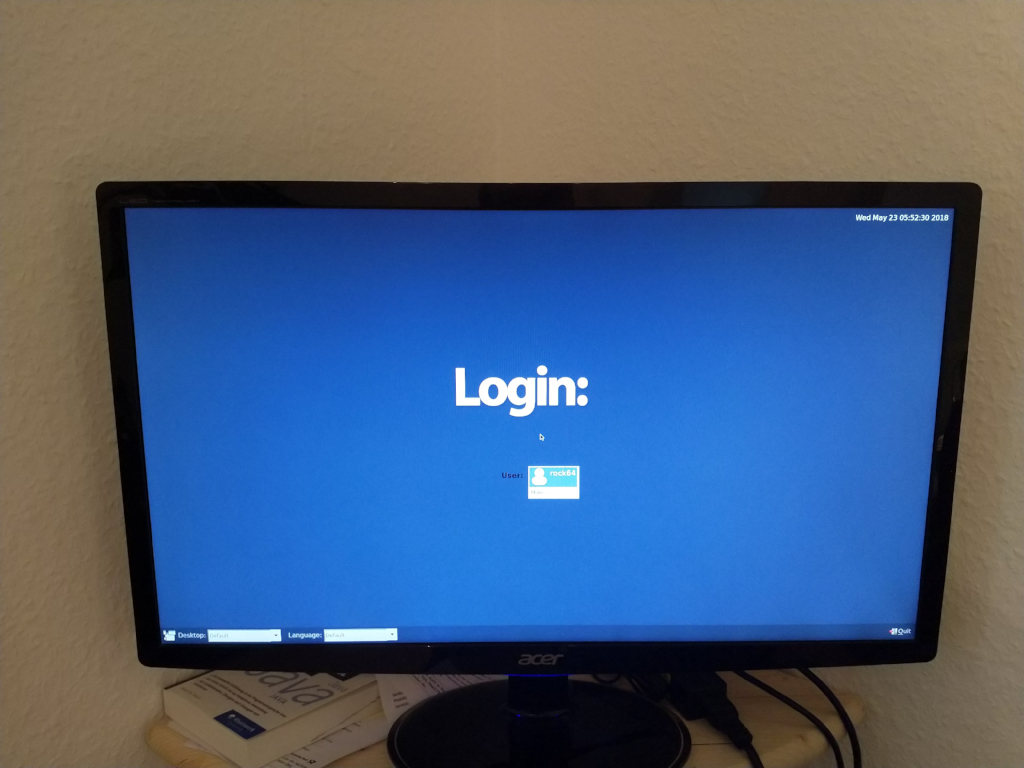Debian Minimal von Mr.Fixit2001
Linux
4
Beiträge
1
Kommentatoren
533
Aufrufe
-
Das erste Image mit funktionierendem WiFi !
Aus dem Readme
MrFixIt's custom kernel which has been optimized for usage for retro-gaming and 4k high definition media playback. It also allows for the use of Wifi, Bluetooth, and PCIe all at the same time.
Ja, leider bekomme ich das so nicht ans Laufen. Alle meine PCIe-Karten funktionieren nicht und produzieren meistens irgendeine Kernel-Panic. Habe Mr.Fixit eine Menge Logs geschickt, mal sehen ob sie das Problem gefixt bekommen und es dann hoffentlich in allen Images funktioniert.
Quelle: https://github.com/mrfixit2001/debian_builds/releases
-
Neue Version
- Supports ROCK64 Rev 3 Booting from SD Card
- AUFS drivers embedded into kernel
- LOTS of additional mainline back-ports and custom fixes
- Improved Networking Performance
- Additional drivers included in kernel, including (but not limited to):
- LOTS of networking stuff, such as VLAN and IPv6
- Requirements for DOCKER containers
- RAID support
-
Und wieder ein paar Verbesserungen
UPDATE May 19, 2019 - Added RockPro64 Release - Includes same Updates as Rock64, plus:
- Suspend and Resume support is now included
- CDN-DP firmware loading fixed
- Additional PCIe driver fixes - Gen2 training now works
- Additional Intel PCIe drivers
May 14, 2019 - ROCK64:
- ROCK64 Rev 3 Booting from SD Card Fixed
* AUFS drivers embedded into kernel
* LOTS of additional mainline back-ports and custom fixes
* Improved Networking Performance
* Additional drivers included in kernel, including (but not limited to):
* LOTS of networking stuff, such as VLAN and IPv6
* Requirements for DOCKER containers
* RAID support
-
-
-
-
-
stretch-minimal-rockpro64
Verschoben Linux -
bionic-minimal-rockpro64
Verschoben Linux -
-
bionic-containers-rockpro64
Verschoben Linux
